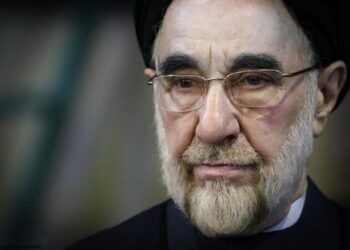The Islamic Republic this week in similar undiplomatic terms, charging that the Arabs were blind tools of the Americans.
The exchange appeared to be dragging relations to a new low, if that is possible.
To many, it was the Saudis, not the Americans, who were behind the new and more hostile approach to Iran. In the eyes of many analysts, Riyadh has decided that Iran poses a threat it can no longer try to deal with quietly.
Another element may be the new Saudi-American frictions. King Abdullah is reported to be furious with Washington for “dumping” Egyptian President Hosni Mubarak and to feel the Americans are no longer trustworthy allies. He may even have accepted the fear of many Persian Gulf Arabs that he has rejected until now—that Washington is prepared to cut a deal with the Islamic Republic that would allow Iran to do as it wishes with the Persian Gulf Arabs in exchange for Iran abandoning its nuclear program.
While the thinking in Riyadh is often opaque, it is clear the Saudis have in the past few weeks turned more confrontational with Iran.
Last Thursday, the Majlis National Security Committee issued a report saying, “Saudi Arabia should know it better not play with fire in the sensitive region of the Persian Gulf.”
Normally, the Saudis would just ignore such rhetoric, which didn’t even come from the government, just from a parliamentary committee.
Instead, the Saudi government lashed back with a statement accusing Iran of “fueling confessional tensions [referring to Sunni-Shia strife] and failing to respect the norms of good neighborliness, as in the case of Kuwait, where a spy cell has been uncovered.”
The Saudi statement said Iran was “ignoring the fact that it has no right to violate Bahrain’s sovereignty or to stick its nose in the affairs of the Gulf countries.”
Then on Sunday, the foreign ministers of the six members of the Gulf Cooperation Council (GCC) issued a statement saying they are “deeply worried about continued Iranian meddling.” They flatly accused Iran of “violating the sovereignty” of the GCC members, an extremely serious charge.
In Tehran, Foreign Ministry spokesman Ramin Mehman-Parast immediately fired back, saying the growing tension was the product of a “Western and Zionist conspiracy” aimed at “sowing discord among Islamic countries.… We advise the regional governments to heed the demands of their people in order to stop such conspiracies.”
On Monday, Kazem Jalali, the spokesman for the Majlis National Security made the same point, albeit far less diplomatically. “Instead of taking proper measures to meet the demands of their people,” he said, “they strive to lay the blame on the Islamic Republic. They are well aware that their dependence on the US and their attitude toward the Zionist regime have imposed a form of humiliation on their nations, and they are seeking to regain their lost reputation.”
In other words, Jalali accused the Arabs of the lame old practice of blaming foreigners for their problem and instead blamed (other) foreigners.
News reports in the Persian Gulf states said Arab political leaders were considering severing relations with Iran. But the GCC foreign ministers took no such drastic action at their meeting Sunday.
In a news conference Monday, President Ahmadi-nejad blamed everything on Washington and avoided nasty, anti-Arab rhetoric. He said the Americans had leaned on the Arabs to issue their statement critical of Iran. “We have extended the hand of friendship [to the Arabs around the Persian Gulf]. … Do not fall into the American trap. All should be alert.”
Meanwhile, in Bahrain the recognized main political leader of the Shia community damned both Iran and Saudi Arabia. Ali Salman agreed with the charge that Iran was meddling and gave the Islamic Republic no quarter. “We urge Iran not to meddle in Bahraini internal affairs,” he said.
But at the same time, he damned Saudi Arabia for sending troops across the causeway to Bahrain last month. “We demand that Saudi Arabia withdraw its troops,” he said. “We do not want Bahrain turned into a battlefield.”
Iran has been proclaiming that the trouble in Bahrain is a clash between the government and the people. But the rest of the world sees the strife as chiefly sectarian, between the Shias who comprise about two-thirds of the population and the Sunnis who have ruled in Bahrain for almost two centuries.
In Tehran, officials continue to struggle with how to cope with the strife in Syria. State television last Tuesday relayed live pictures from Syrian television showing throngs in the streets of Damascus pledging their allegiance to President Bashar al-Assad to prove that the Syrian public does not oppose the regime there.














